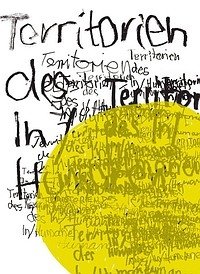Territories of the In/Human
dal 28/4/2010 al 31/7/2010
Segnalato da
bankleer
Bernd Behr
Frederico Camara
Matilde Cassani
Lukas Einsele
Edgar Endress
Bjorn Franke
Pia Fuchs
Mariam Ghani
Matthew Gottschalk
Prince Tshime Kalumbwa
Dagmar Keller
Martin Wittwer
Losif Kiraly
Anna Konik
Aglaia Konrad
Korpys / Loffler
Elke Marhofer
Christine Meisner
Olivier Menanteau
Monika Oechsler
Danilo Prnjat
p.t.t. red
Dubravka Sekulic
Helene Sommer
Jan-Peter E.R. Sonntag
Krassimir Terziev
Lan Tuazon
Nomeda und Gediminas Urbonas
Artur Zmijewski
Hans D. Christ
Iris Dressler
28/4/2010
Territories of the In/Human
Wurttembergischer Kunstverein WKV, Stuttgart
With this exhibition, the Kunstverein is following this year's thematic focus at the Akademie, namely, the question as to how pervasive concepts of the human and inhuman have become.

Concept and Curated by: Hans D. Christ, Iris Dressler
bankleer, Bernd Behr, Frederico Câmara, Matilde Cassani, Lukas Einsele, Edgar Endress, Björn Franke, Pia Fuchs, Mariam Ghani, Matthew Gottschalk, Prince Tshime Kalumbwa, Dagmar Keller / Martin Wittwer, Iosif Kiraly, Anna Konik, Aglaia Konrad, Korpys / Löffler, Elke Marhöfer, Christine Meisner, Olivier Menanteau, Monika Oechsler, Danilo Prnjat, p.t.t. red, Dubravka Sekulić, Helene Sommer, Jan-Peter E.R. Sonntag, Krassimir Terziev, Lan Tuazon, Nomeda und Gediminas Urbonas, Artur Zmijewski
From April 30 to August 1, 2010 the Württembergischer Kunstverein will be showing, together with the Akademie Schloss Solitude, the exhibition "Territories of the In/Human" in celebration of the twenty-year anniversary of the Akademie's founding. With this exhibition, the Kunstverein is following this year's thematic focus at the Akademie, namely, the question as to how pervasive concepts of the human and inhuman have become.
The twenty-year history of the Akademie Schloss Solitude coincides with a series of far-reaching political, social, economic, and cultural upheavals: from the disintegration of the communist and socialist states, to the establishment of new borders and enemy stereotypes, to significant changes in structures of information and communication.
While in the early nineteen-nineties the triumphant success of Western models of democracy and free market economy were still being celebrated, it soon became evident that its promises of never-ending peace and prosperity for all were not going to prove sustainable: in face of wars such as those in former Yugoslavia, Africa, Afghanistan, or Iraq; an ever expanding divide between wealth and poverty; the scramble for natural resources like water, oil, and gas; or the bursting of diverse economic bubbles, not least in the context of the most recent collapse of the financial and real-estate markets. The accelerated and apparently boundless mobility of people, goods, information, or capital flows—as has been conjured in the scope of rhetorics of progress within the age of globalization—goes hand in hand with those fatal acts of inclusion and exclusion to which nearly half a million people have fallen prey over the past two decades on trails of migration.
It is against this backdrop that the exhibition sets out to explore questions pertaining to concepts of the human and inhuman. Being shown are works from around thirty Solitude scholarship recipients, both current and former—works created between the nineteen-nineties and today.
Taking a central role here is an exploration of spatial and societal acts of inclusion and exclusion that have proven inherent to the concept of the modern man. The dichotomies of human and inhuman, subject and object, norm and deviation, guilt and innocence are critically questioned with similar intensity as are the open and hidden structures of violence within the struggle to secure a position within a shifting world order. Continuing along these lines is an exhibition focus on patterns of angst and control, on concepts of functionality or on hierarchical patterns—including how these are inscribed in the territories of the private and the public.
The objective of the exhibition does not—and cannot feasibly—include an exhaustive negotiation of the question as to how pervasive concepts of the human and inhuman have become. It moreover attempts to treat selected aspects of this complex and sweeping radius of problematic issues.
The exhibition will be accompanied by a comprehensive lecture and film program.
An exhibition by: Akademie Schloss Solitude and Württembergischer Kunstverein
In conjunction with: 20 Years Akademie Schloss Solitude! / Design of the (In-)Human
Idea: Philip Ursprung
Press conference Thursday, 29 April 2010, 2:00 pm
Opening Thursday, 29 April 2010, 8:30 pm
Württembergischer Kunstverein Stuttgart
Schlossplatz 2, D-70173 Stuttgart
Hours: Tue, Thu - Sun: 11:00 am - 6:00 pm
Wed: 11:00 am - 8:00 pm
Entrance fees 5/ 3 EUR reduced



